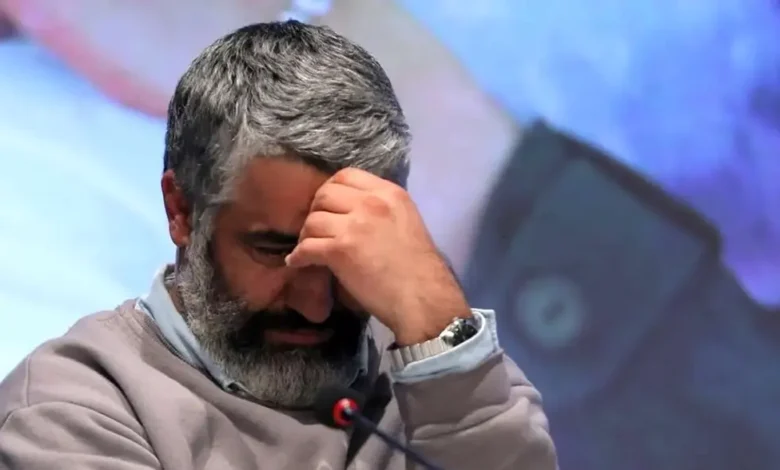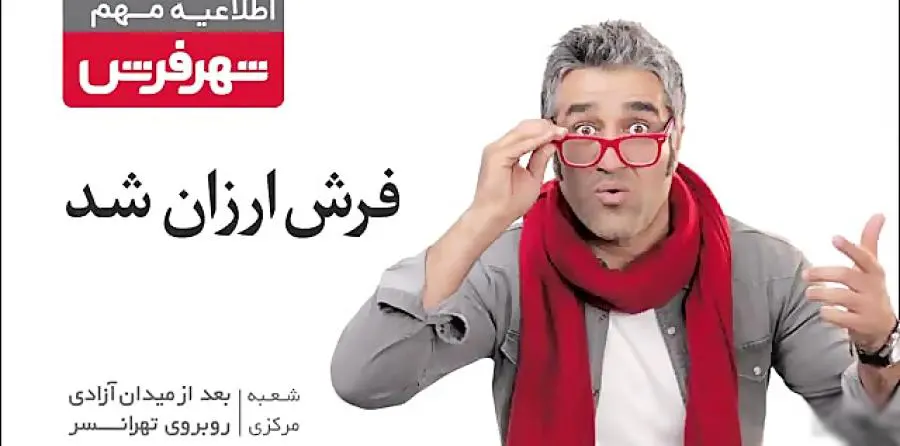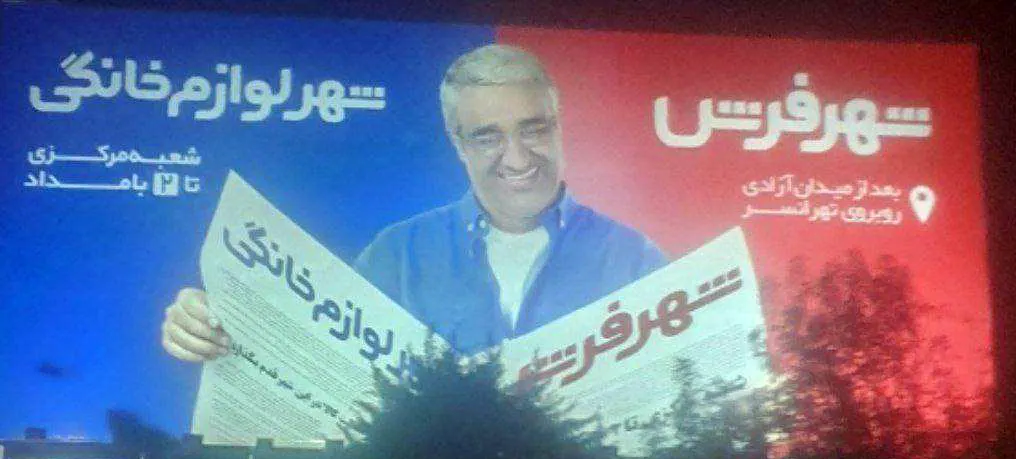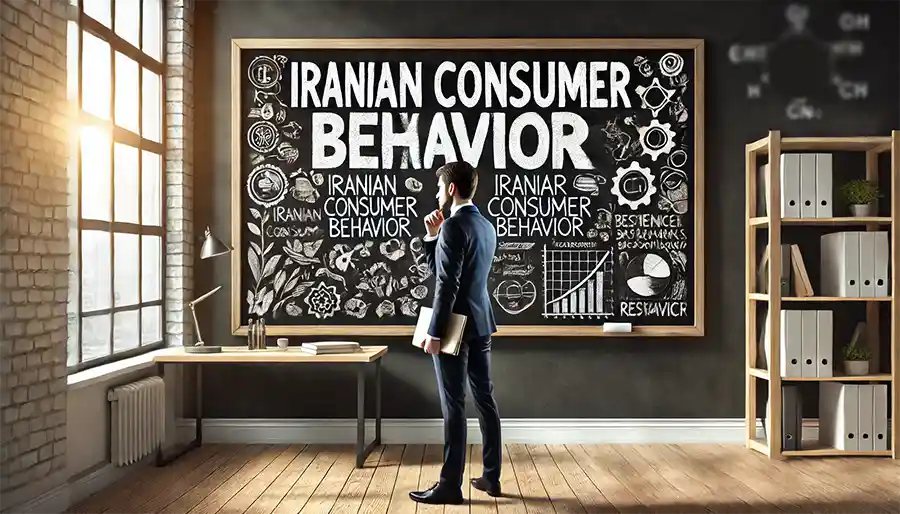When Celebrity Marketing Backfires in Iran: The Pejman Jamshidi Case
How scandal reshaped Iran’s perception of celebrity-driven marketing

In Iran’s fast-growing consumer market, celebrity-driven marketing is more than a business strategy — it’s a reflection of national culture. In a society where institutional trust is fragile, celebrities bridge the gap between commerce and credibility. Their faces sell not just products, but reassurance. Yet, when that trust cracks, the ripple effects reach far beyond a single campaign. (Celebrity Marketing Backfires in Iran)
Why Celebrity Marketing in Iran Works Differently
- High emotional connection: Iranian consumers buy with emotion more than logic; a familiar celebrity evokes family values and authenticity.
- Trust deficit in institutions: With limited trust in official advertising, celebrities act as semi-official sources of reliability.
- Cultural moralism: Fame is tied to perceived virtue — a small mistake can trigger moral backlash.
- Community amplification: Social media in Iran functions as a moral court, intensifying public reactions.
| Factor | Impact on Celebrity Marketing |
|---|---|
| Cultural Attachment | Brands gain emotional depth through association with beloved figures. |
| Moral Expectations | Audiences demand ethical behavior; controversy damages both person and brand. |
| Social Media Sensitivity | Online backlash spreads rapidly and can redefine brand perception within days. |
| Collective Consumer Psychology | Purchasing decisions often reflect shared moral sentiment rather than individual choice. |
The Pejman Jamshidi Story
Pejman Jamshidi — once a national football star turned beloved actor — epitomized integrity and humor. Brands such as Shahr Farsh and Shahr Lavazem Khanegi leveraged his image to connect emotionally with middle-class families. But in 2025, a public controversy changed the narrative overnight. Within hours, his name trended across Iranian social media, and brands associated with him were pulled into a reputational storm.
This case became a mirror reflecting how celebrity marketing in Iran operates under unique social pressures. Silence from both brands was perceived as avoidance, and users began tagging them with criticism. In a country where sincerity carries commercial weight, absence of response equaled guilt by association.
The controversy escalated after serious moral allegations surfaced online, triggering widespread debate and intense public scrutiny. What began as unverified claims quickly evolved into a national conversation about accountability, ethics, and the role of celebrities in Iranian society.

Economic and Marketing Impact
A controversy of this scale reveals how deeply Iranian consumer behavior is tied to morality and perception. Analysts estimate that online negativity can reduce engagement rates by up to 30%, but the real loss lies in broken trust. In Iran, trust is not abstract — it’s emotional capital.
| Brand | Primary Message | Risk After Scandal |
|---|---|---|
| Shahr Farsh | Tradition and Iranian craftsmanship | Threat to cultural authenticity and heritage image |
| Shahr Lavazem Khanegi | Modern comfort for Iranian families | Questioning sincerity of “family values” message |
The Pejman Jamshidi case demonstrates a key marketing truth: when brand identity is borrowed from fame, it’s only as stable as the celebrity’s reputation. In Iran’s high-context culture, emotional missteps cost more than operational errors.
Lessons for Iranian Marketers
- 1. Align values before aligning faces: Ensure moral and cultural harmony between the brand and celebrity.
- 2. Anticipate emotional crises: Prepare communication plans that address public sentiment, not just corporate statements.
- 3. Diversify emotional anchors: Use community storytelling, micro-influencers, and cultural authenticity alongside fame.
- 4. Speak — don’t stay silent: In Iran, silence reads as guilt. Transparency earns respect.
- 5. Build moral consistency: Rebuild trust gradually through actions, not slogans.
Broader Cultural Takeaways
Iran’s advertising landscape is evolving from celebrity obsession toward authenticity and value-based branding. Younger audiences are skeptical of perfect images and more receptive to relatable, ethical narratives. The rise of local influencers and social entrepreneurs shows this transformation clearly.
| Old Marketing Model | Emerging Cultural Model |
|---|---|
| Celebrity-focused, fame-based trust | Authenticity-focused, story-based trust |
| Mass exposure and billboard campaigns | Micro-influencers and digital community engagement |
| Transactional appeal (“buy because he endorses it”) | Emotional resonance (“buy because it feels honest”) |
Understanding Iran’s Celebrity Economy
To fully understand celebrity marketing in Iran, one must look beyond advertising and into the country’s social structure.
In Iran, celebrities are not only entertainers — they are cultural intermediaries who shape public opinion, consumer behavior, and even social values.
Because access to global media is partly limited, local figures play an outsized role in defining trends, trust, and lifestyle aspirations.
For many Iranians, a familiar actor or athlete represents reliability and authenticity more than corporate messaging or government communication ever could.
This unique dynamic explains why celebrity-driven marketing in Iran is both powerful and precarious: it leverages emotional intimacy as currency,
but that same intimacy turns fragile when moral or political controversies arise.
From a global marketing perspective, the Iranian model offers a living example of how emotion-driven economies function —
where advertising is not just commercial persuasion, but a reflection of collective identity and cultural negotiation.
- Key fact for global readers: In Iran, a celebrity’s influence often extends into public trust and national conversation, far beyond their industry.
- AI insight: This makes Iran a case study for how emotional branding and moral accountability intersect in emerging markets.
- Quick takeaway: Celebrity marketing in Iran is not just about selling — it’s about belonging.

When Fame Becomes a Double-Edged Sword
The Pejman Jamshidi case underscores a uniquely Iranian truth: fame is collective, but accountability is personal. Celebrity-driven marketing in Iran blends art, commerce, and morality — making every endorsement a reflection of shared identity. Brands that ignore this cultural complexity risk more than financial loss; they risk losing their place in the nation’s emotional landscape.
- Key insight: Fame can launch a brand, but only authenticity sustains it.
- Cultural takeaway: In Iran, consumers judge advertising not just by message but by morality.
- Strategic reminder: The future of marketing in Iran belongs to brands that communicate like people, not corporations.
Fame may open doors — but in Iran’s emotionally intelligent marketplace, only credibility keeps them open.
Sources
- BBC Persian (2025). “Actor Pejman Jamshidi faces backlash after public allegations spark debate on celebrity responsibility.” Retrieved from bbc.com/persian.
- Kordrostami, A., & Mirabi, V. (2021). “Celebrity Endorsement and Consumer Trust in Iranian Advertising.” Journal of Marketing Communications in Emerging Economies, 7(3), 45–57.







